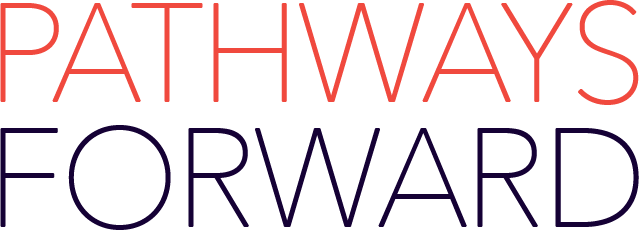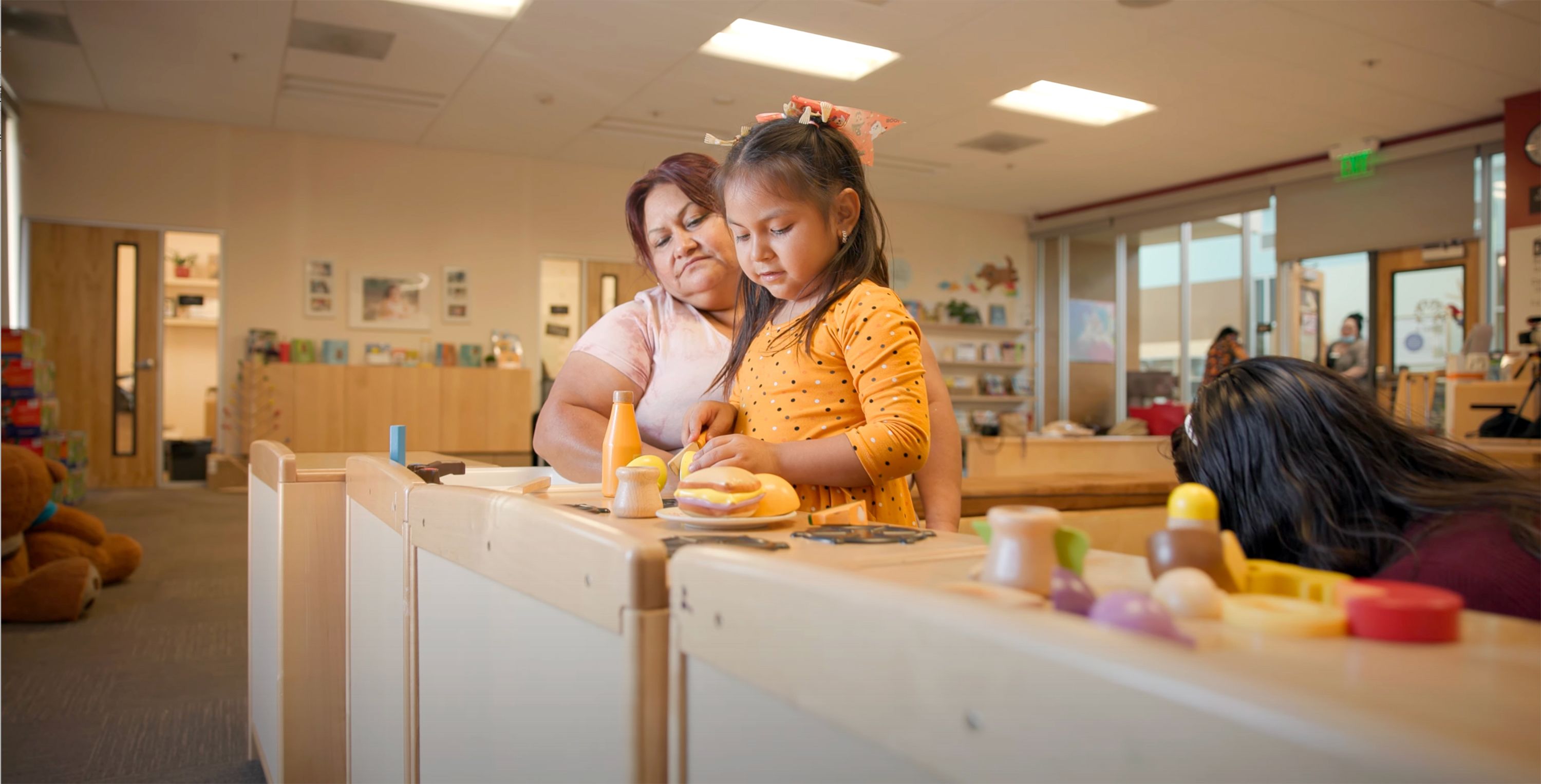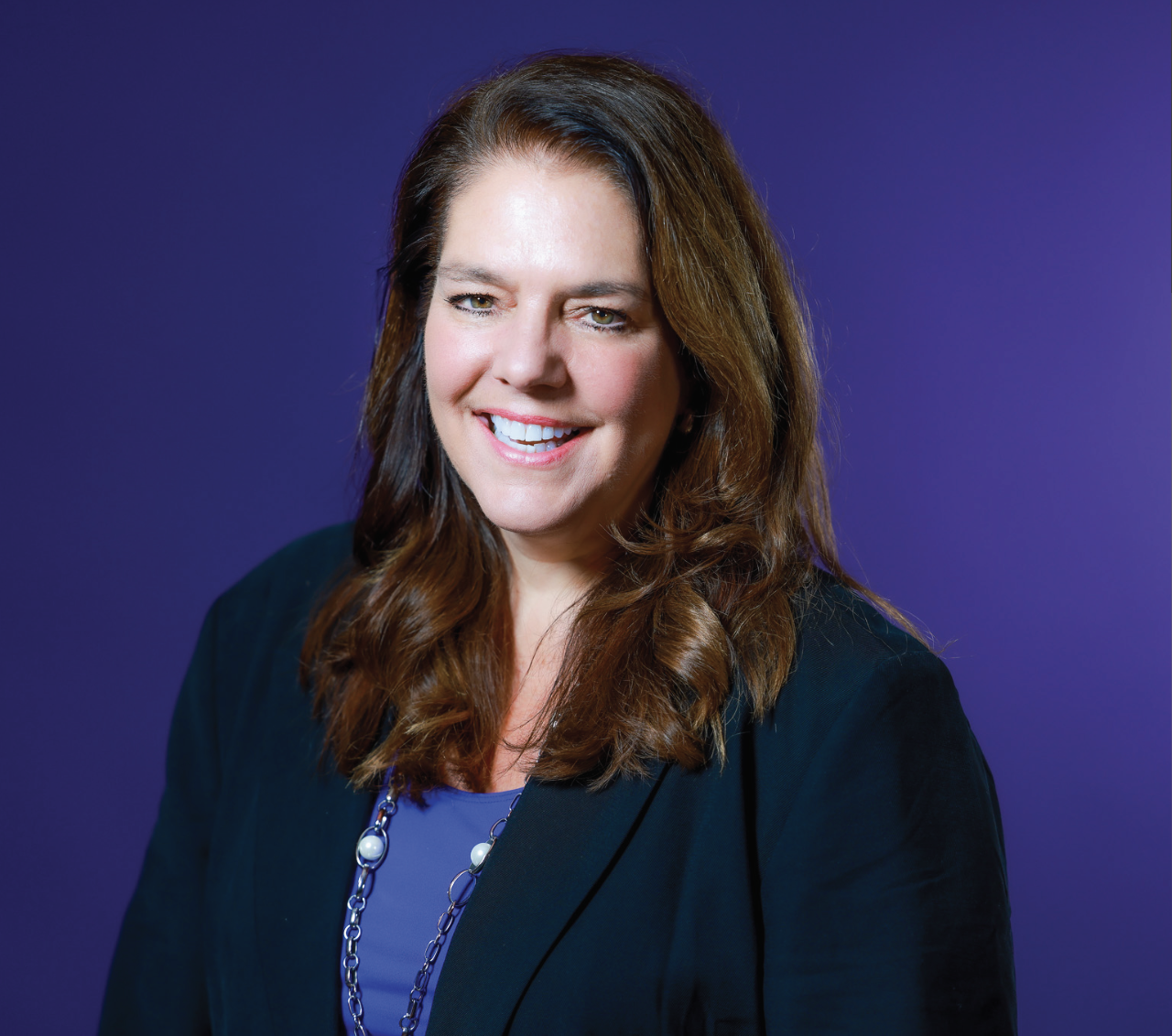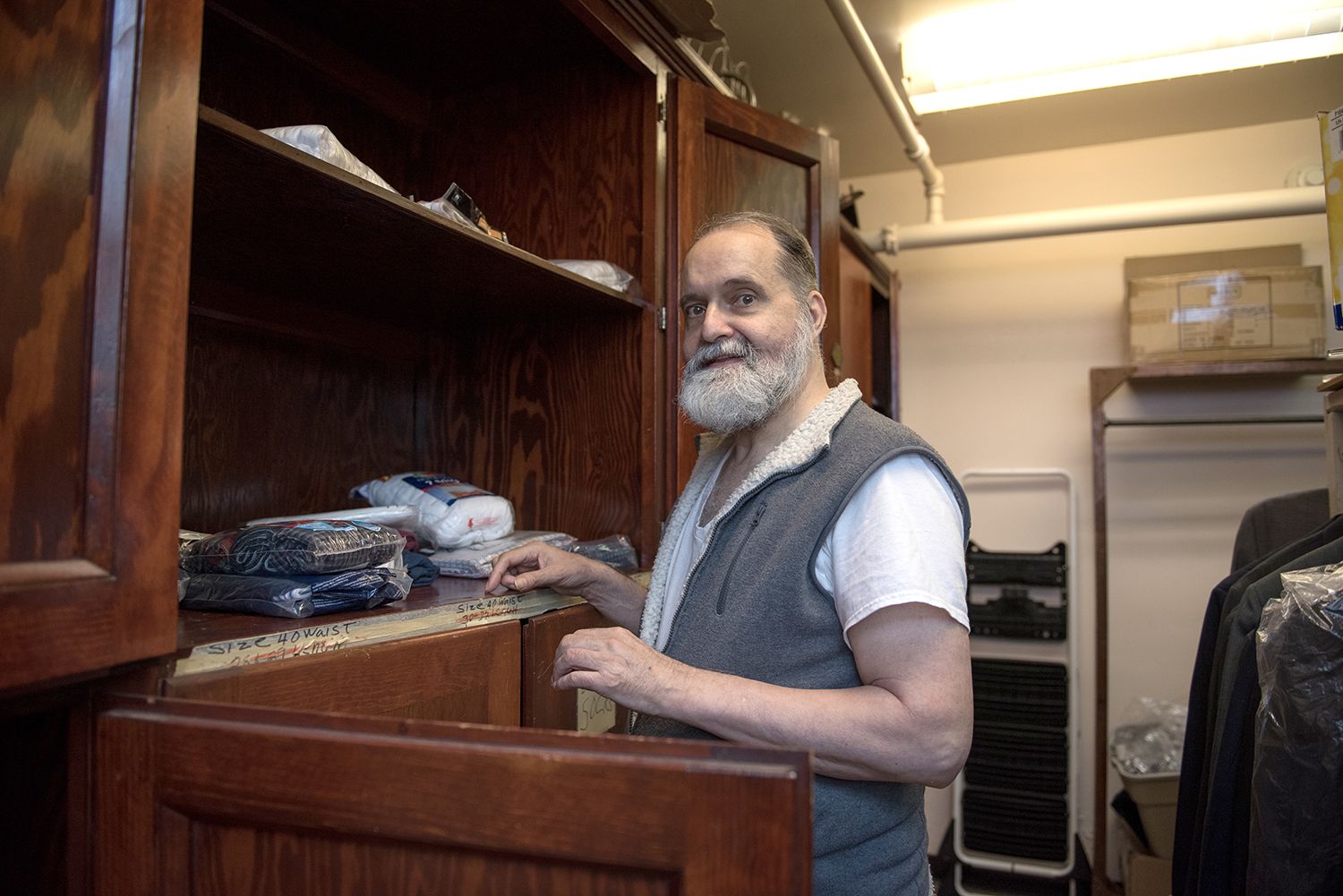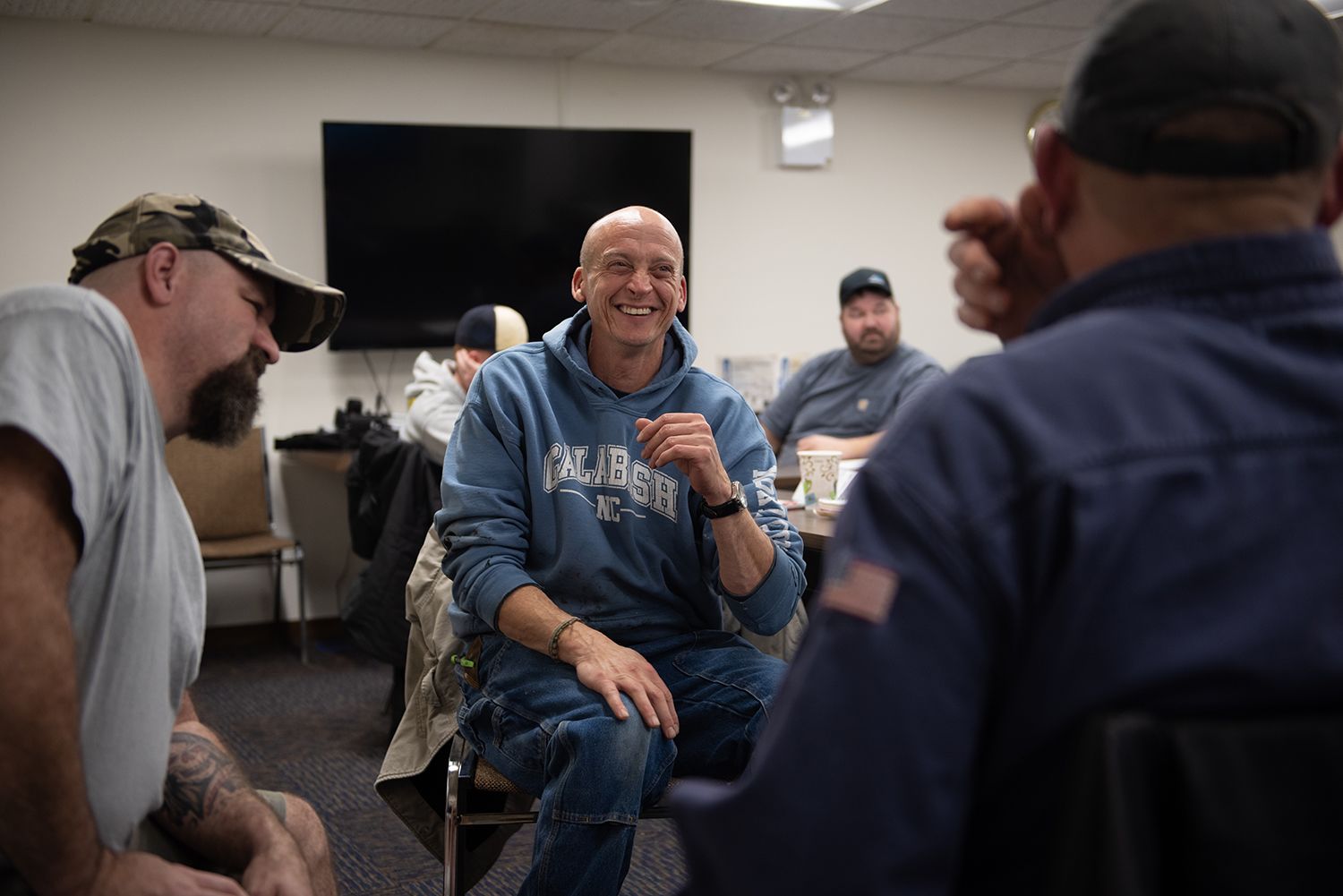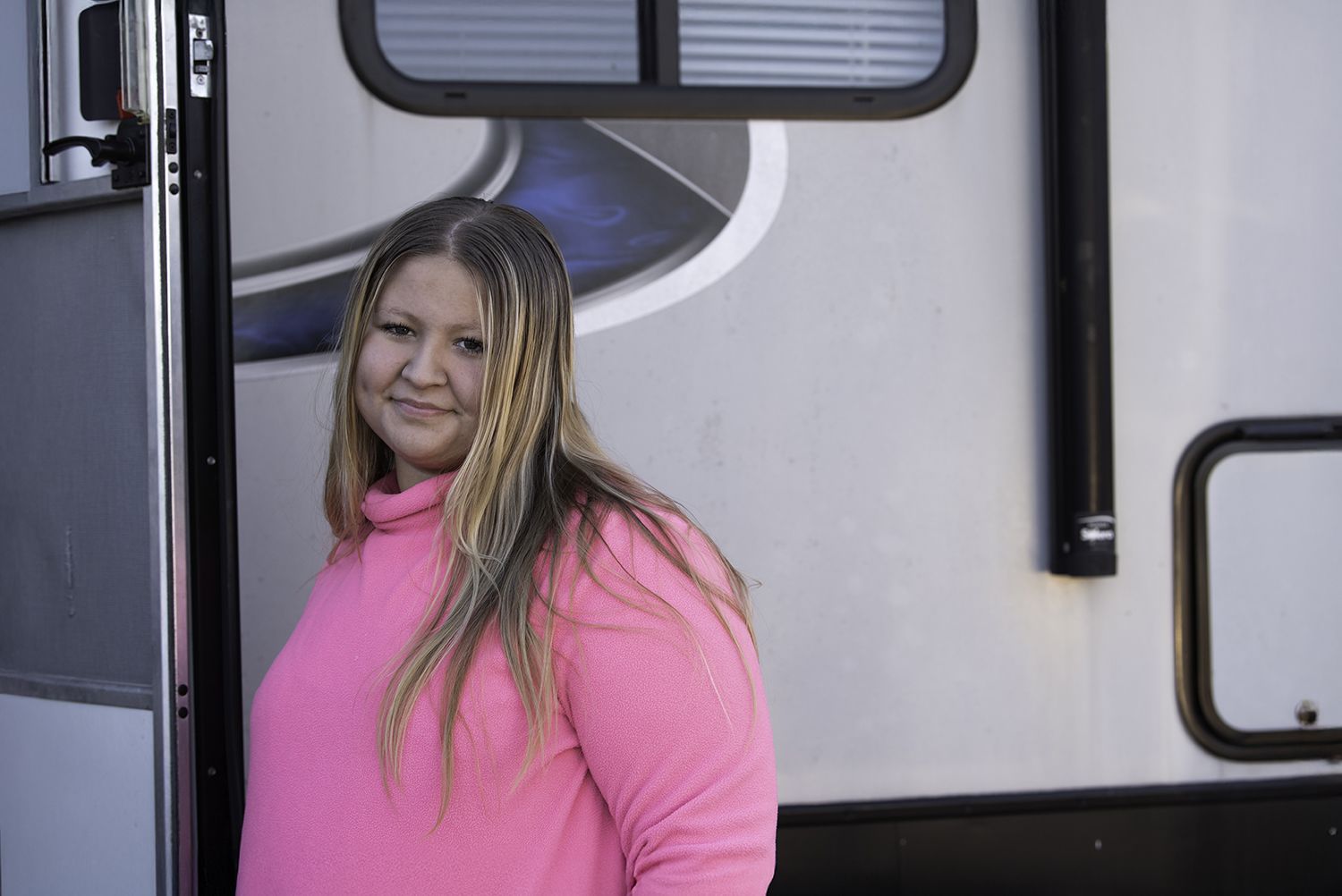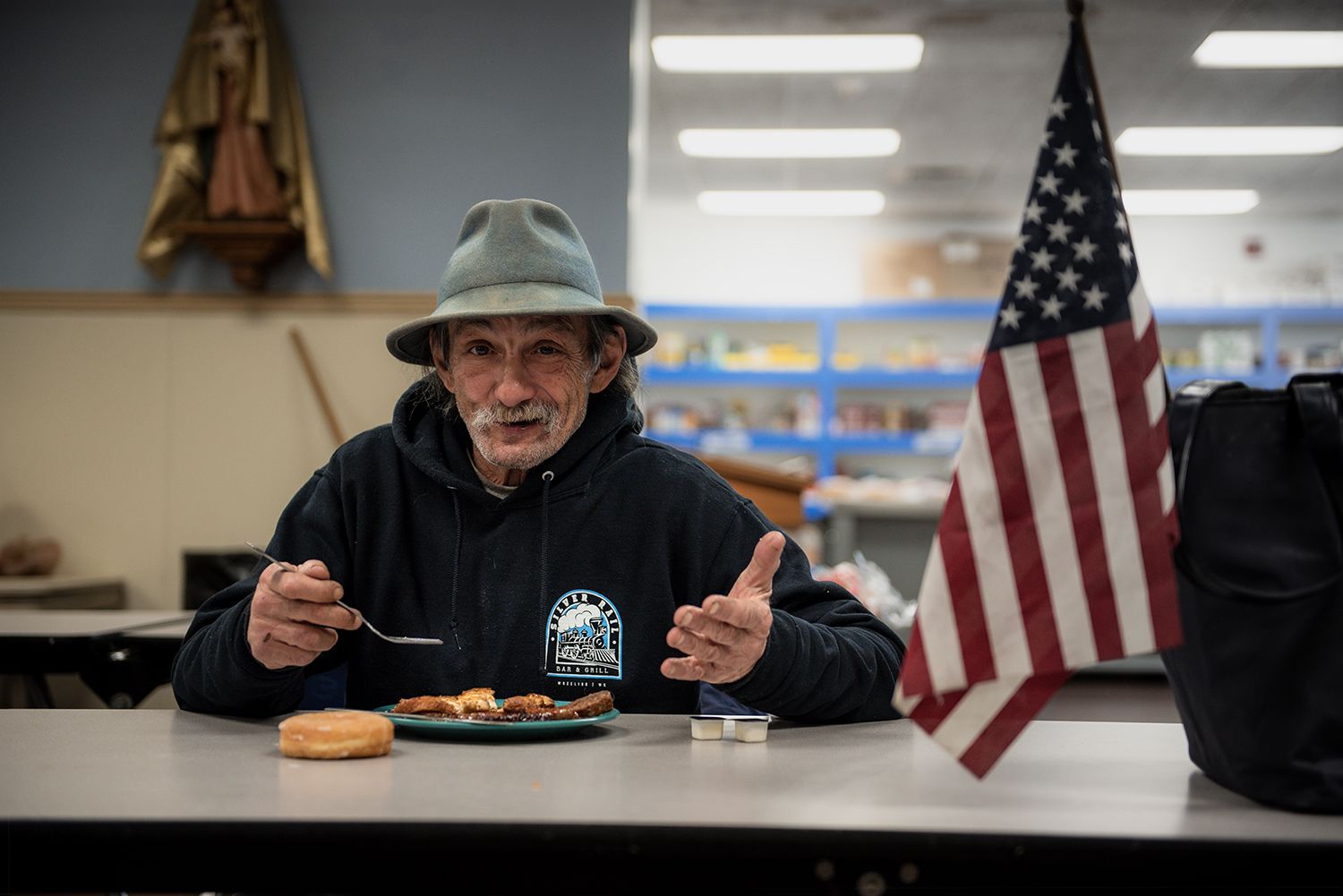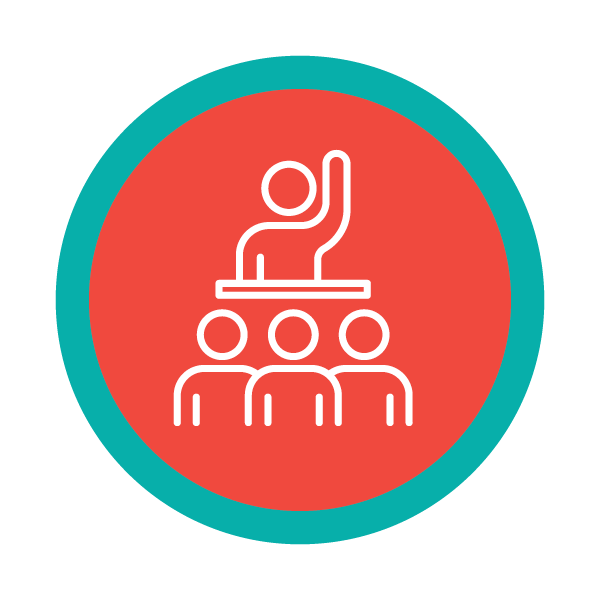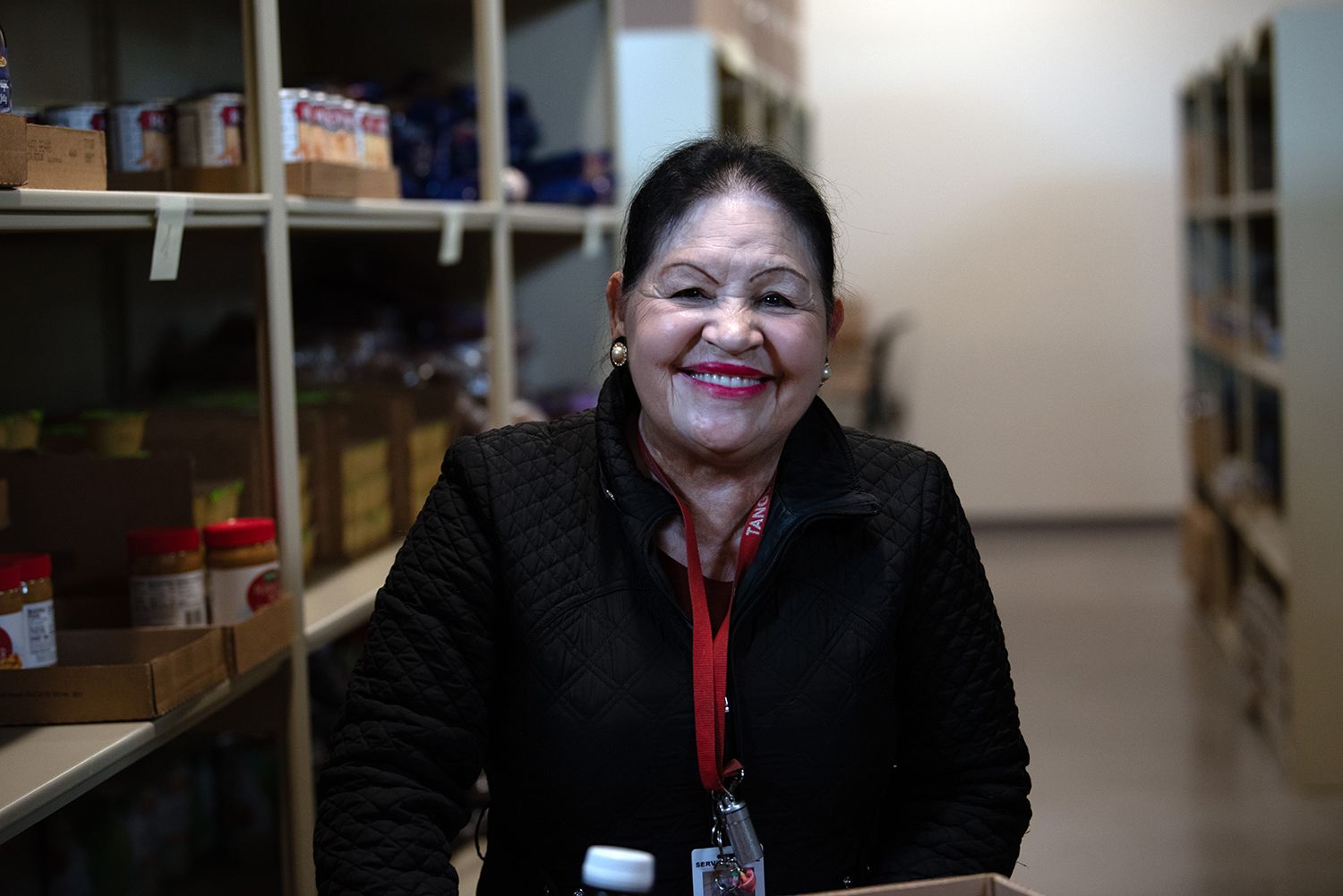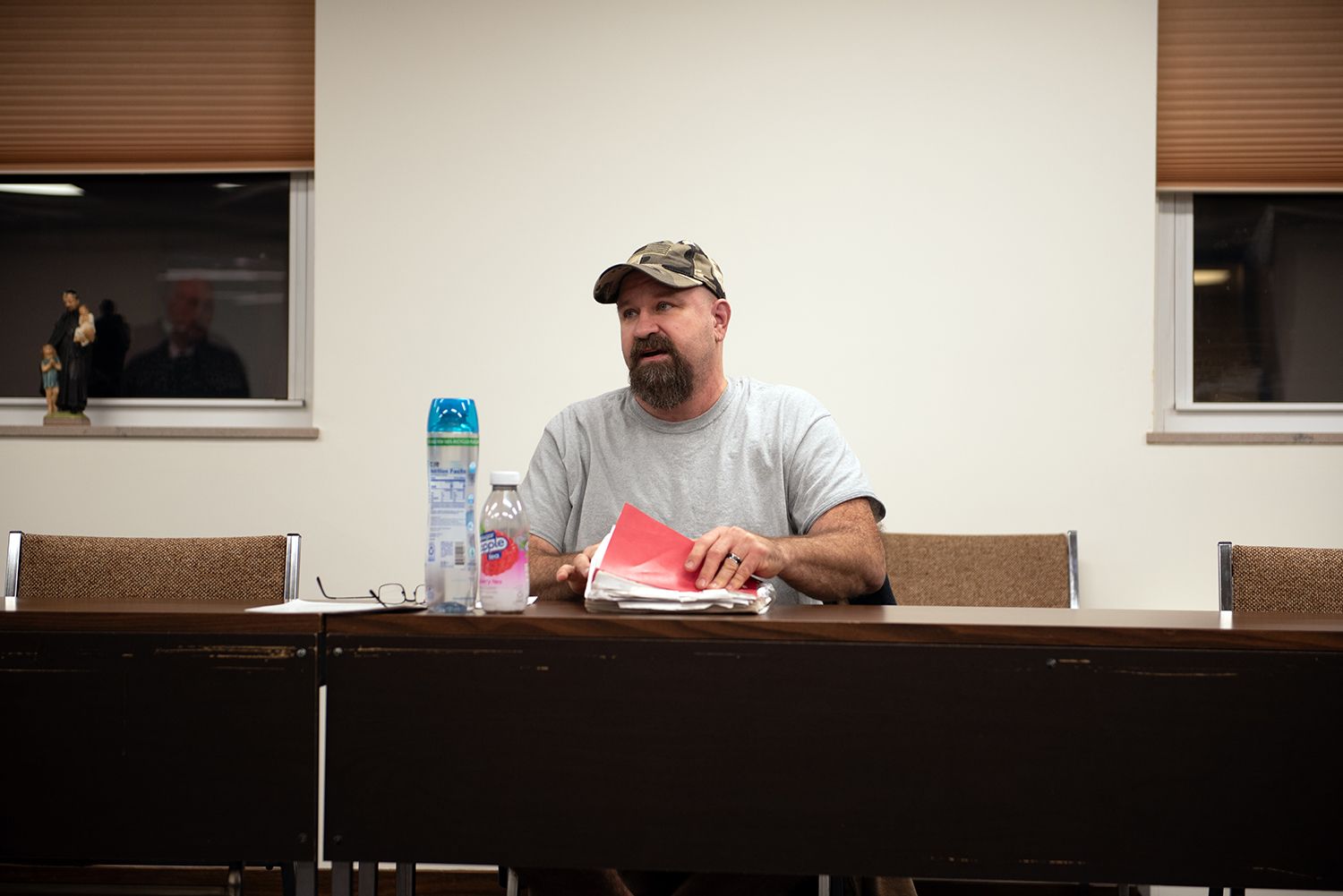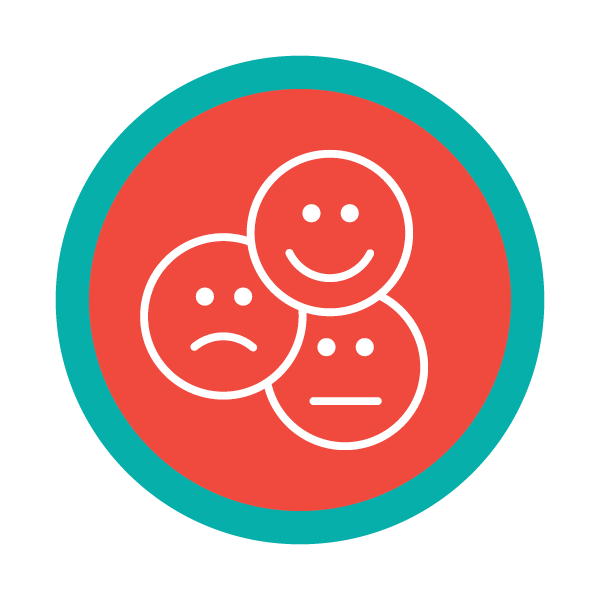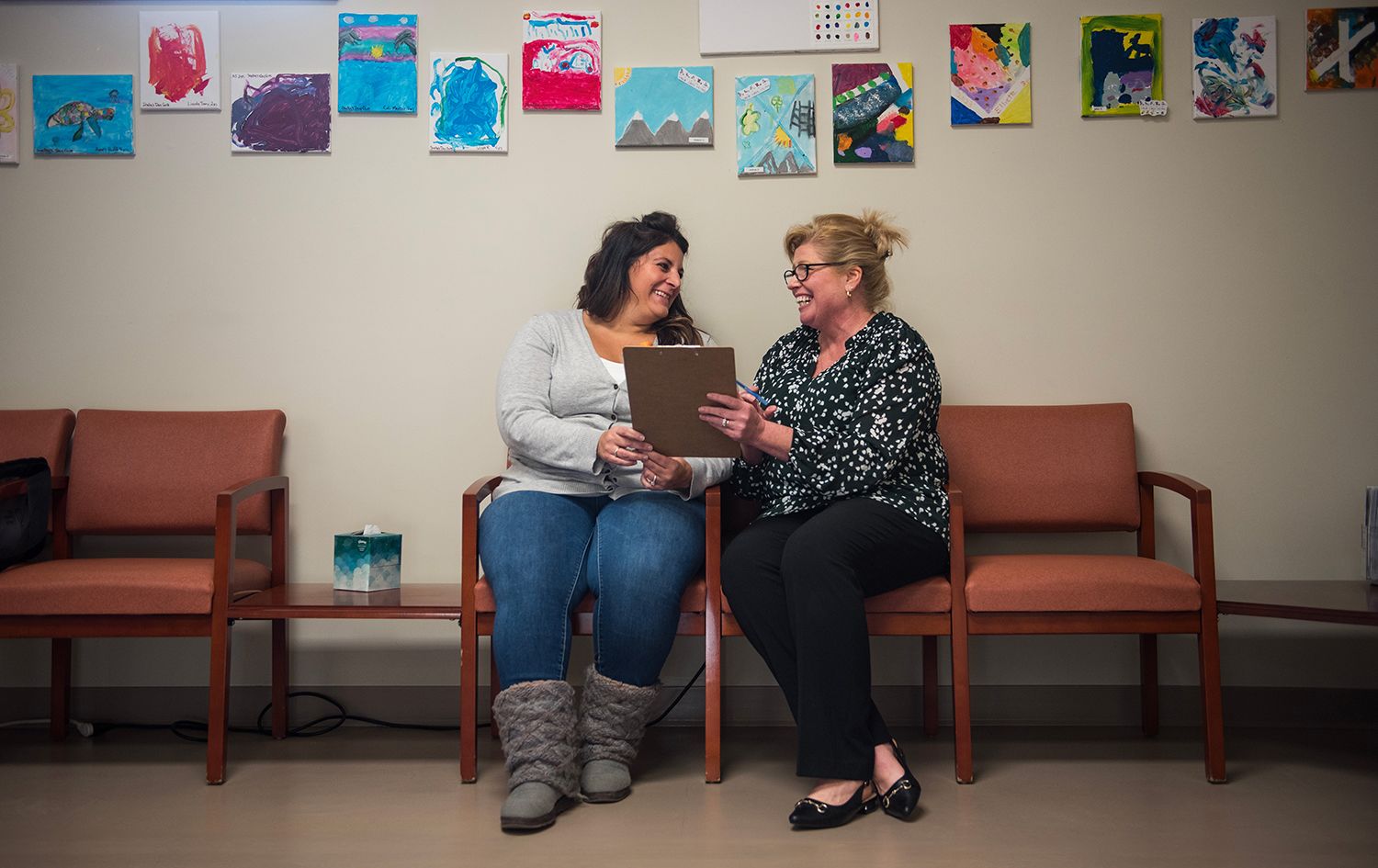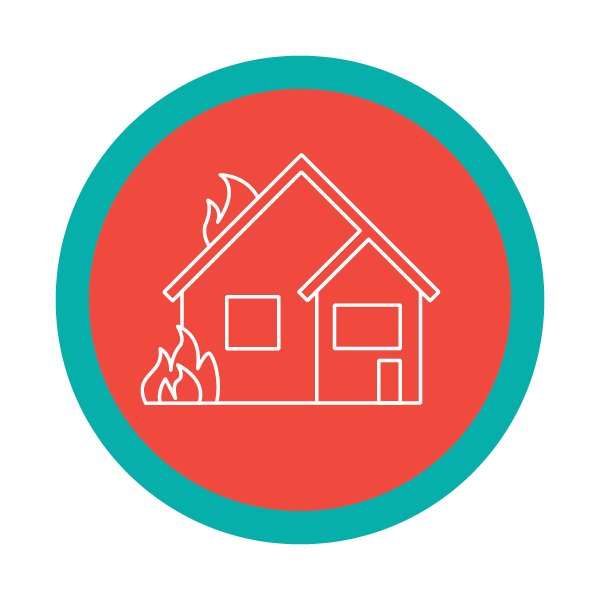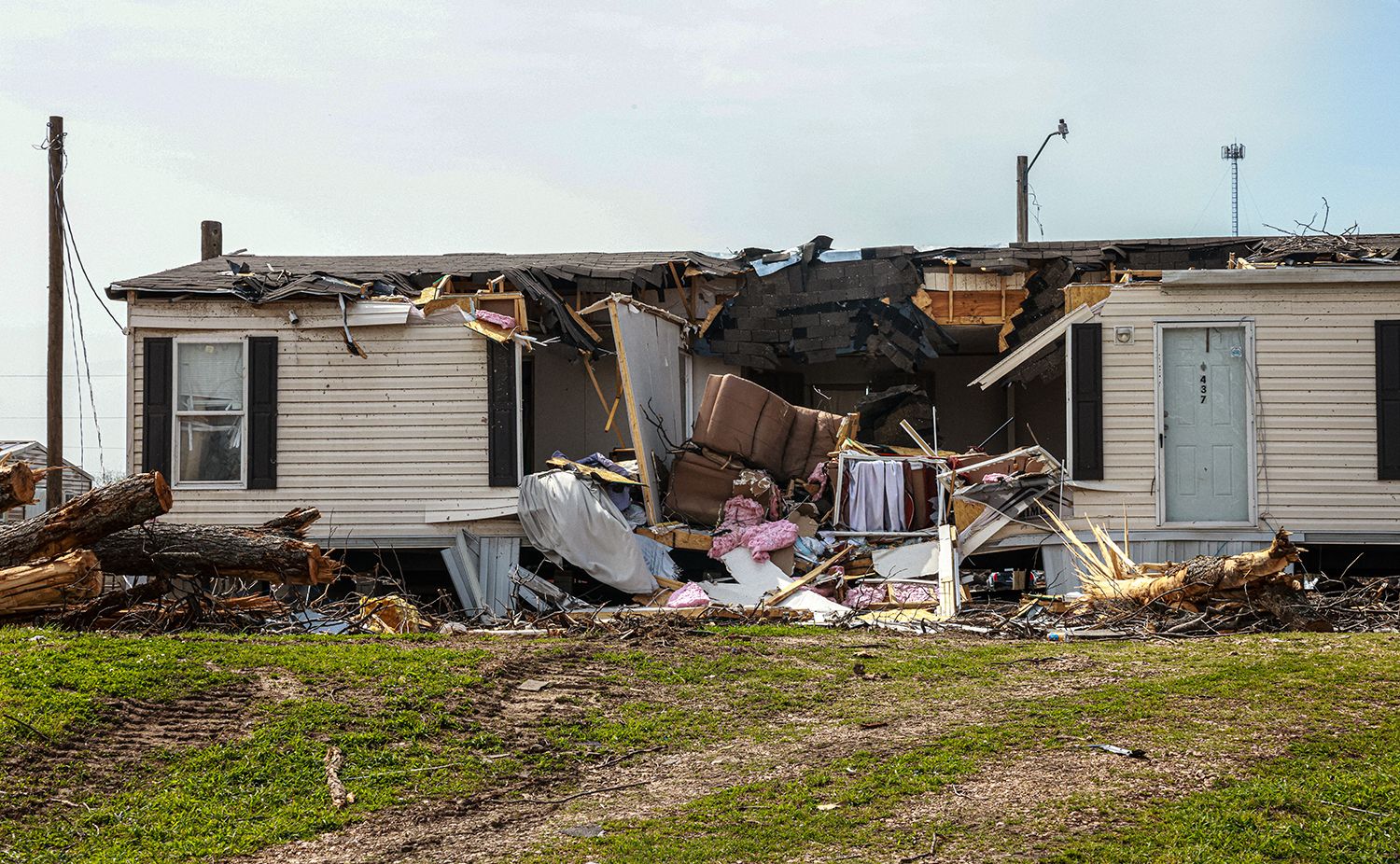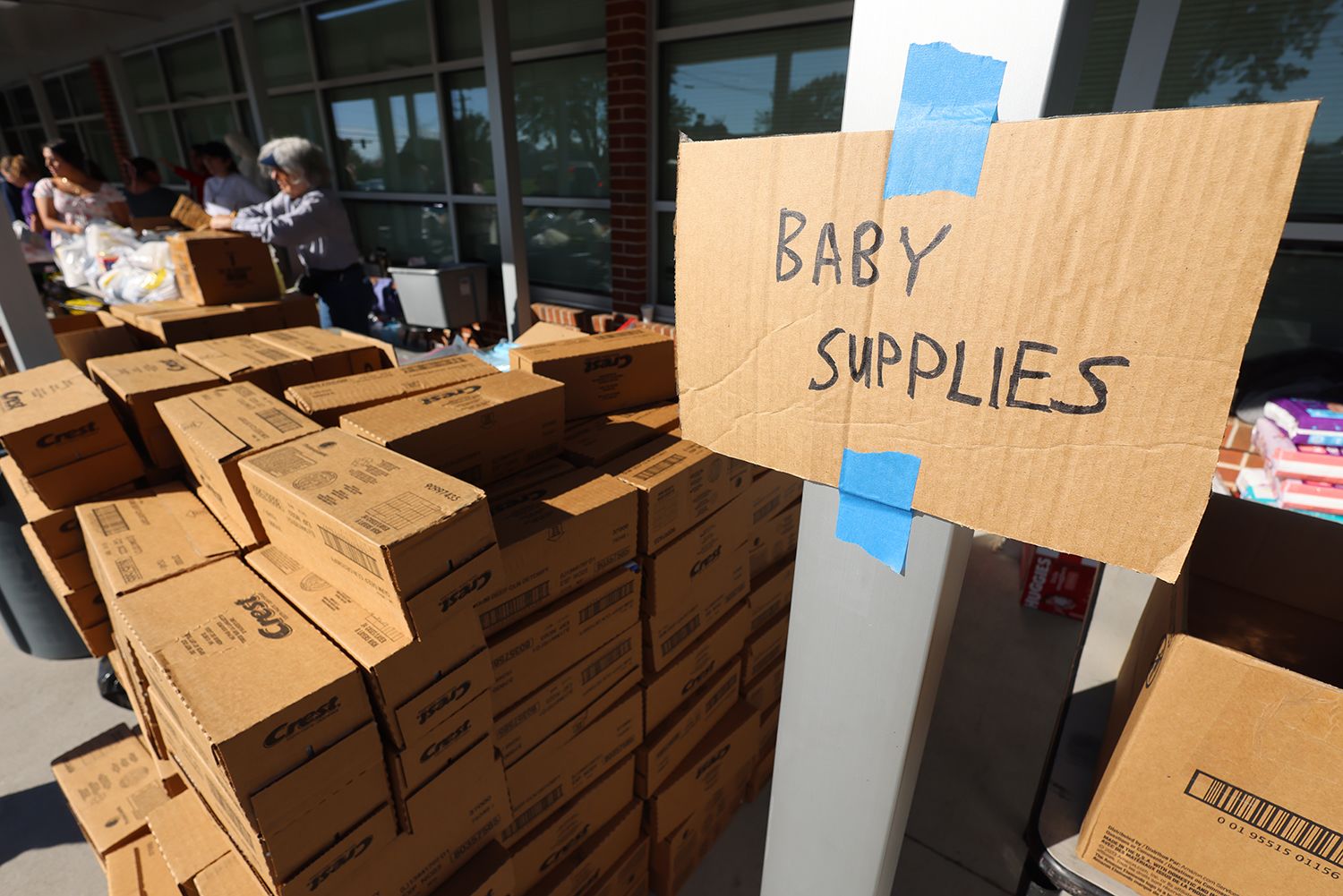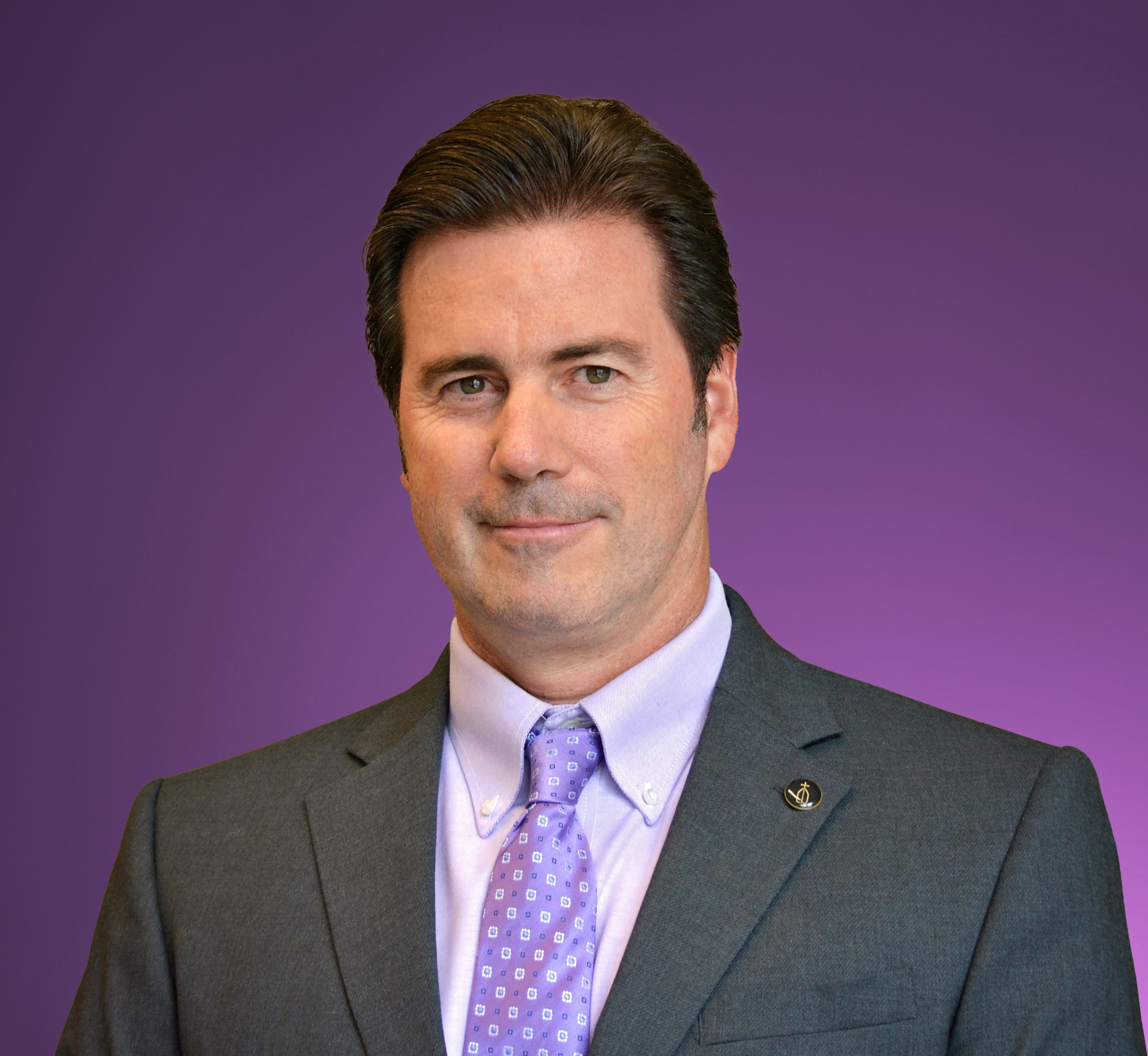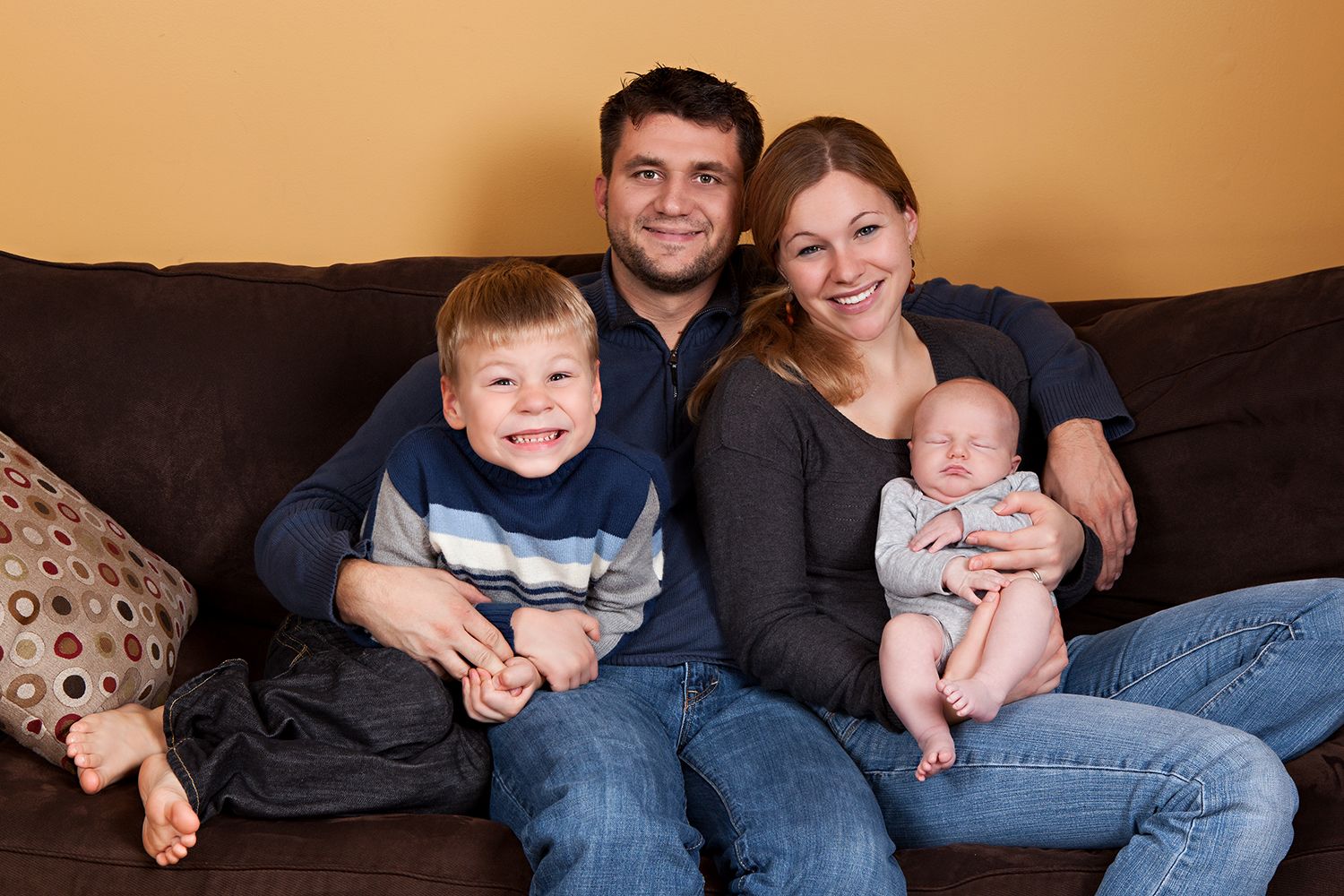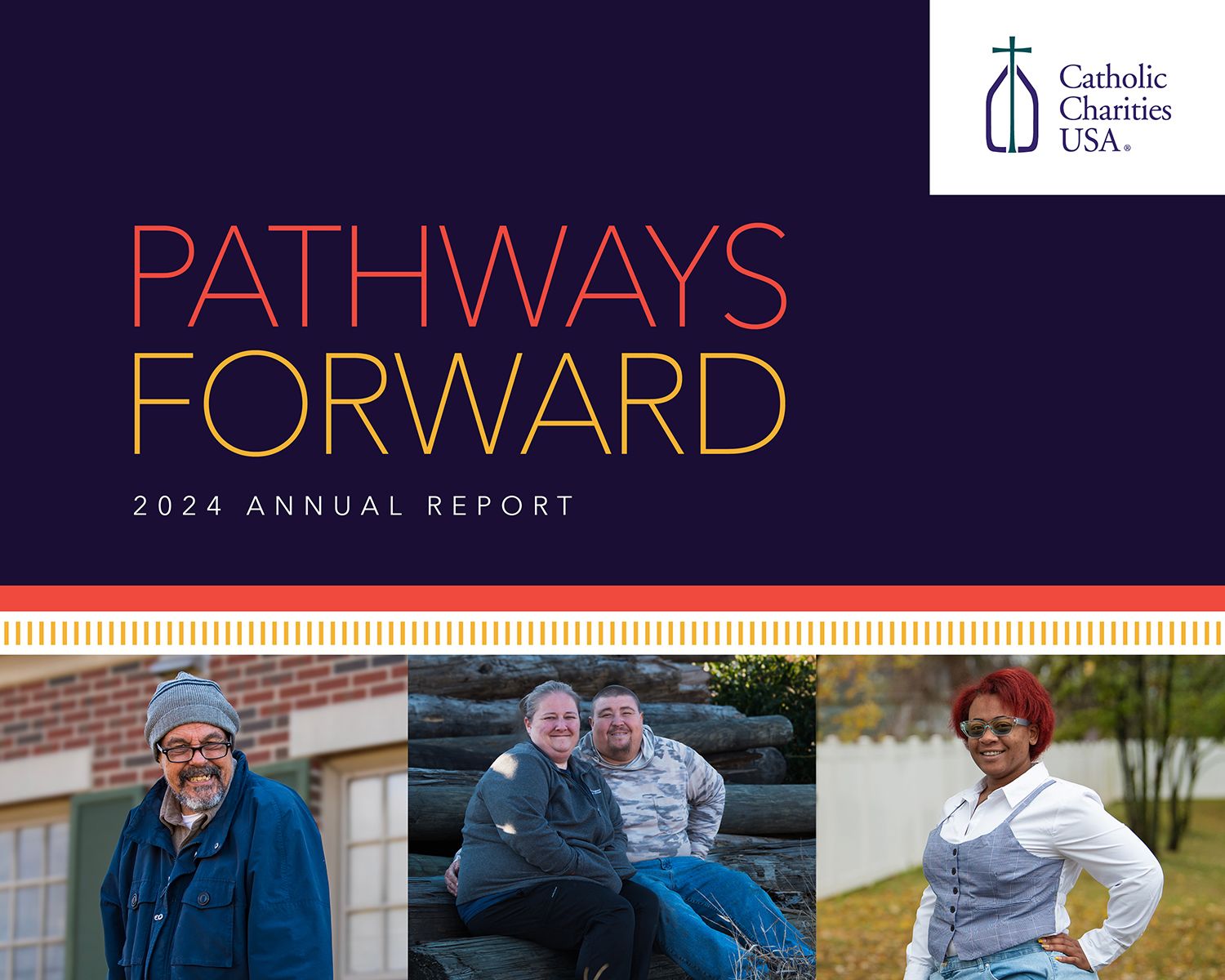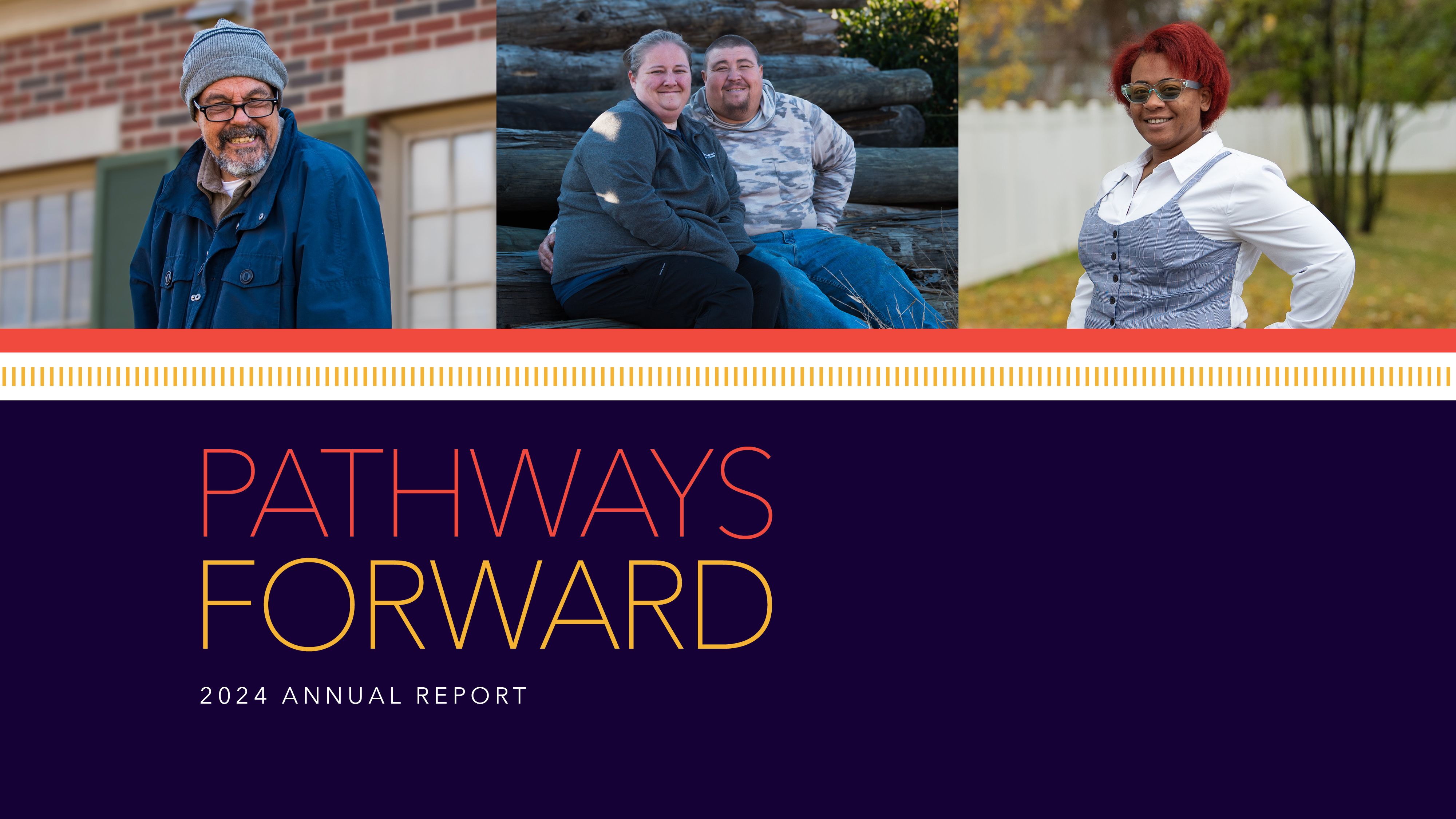
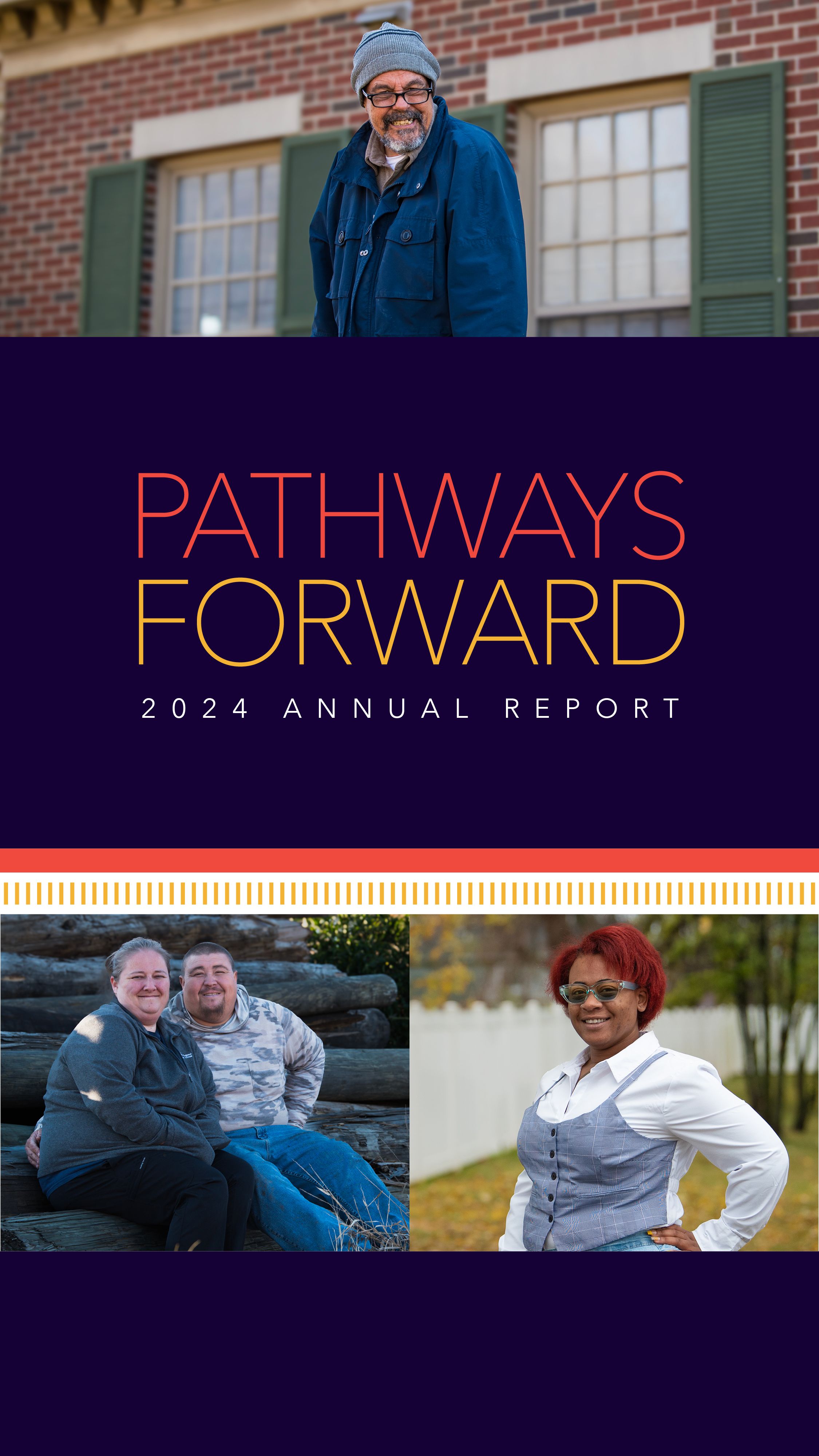
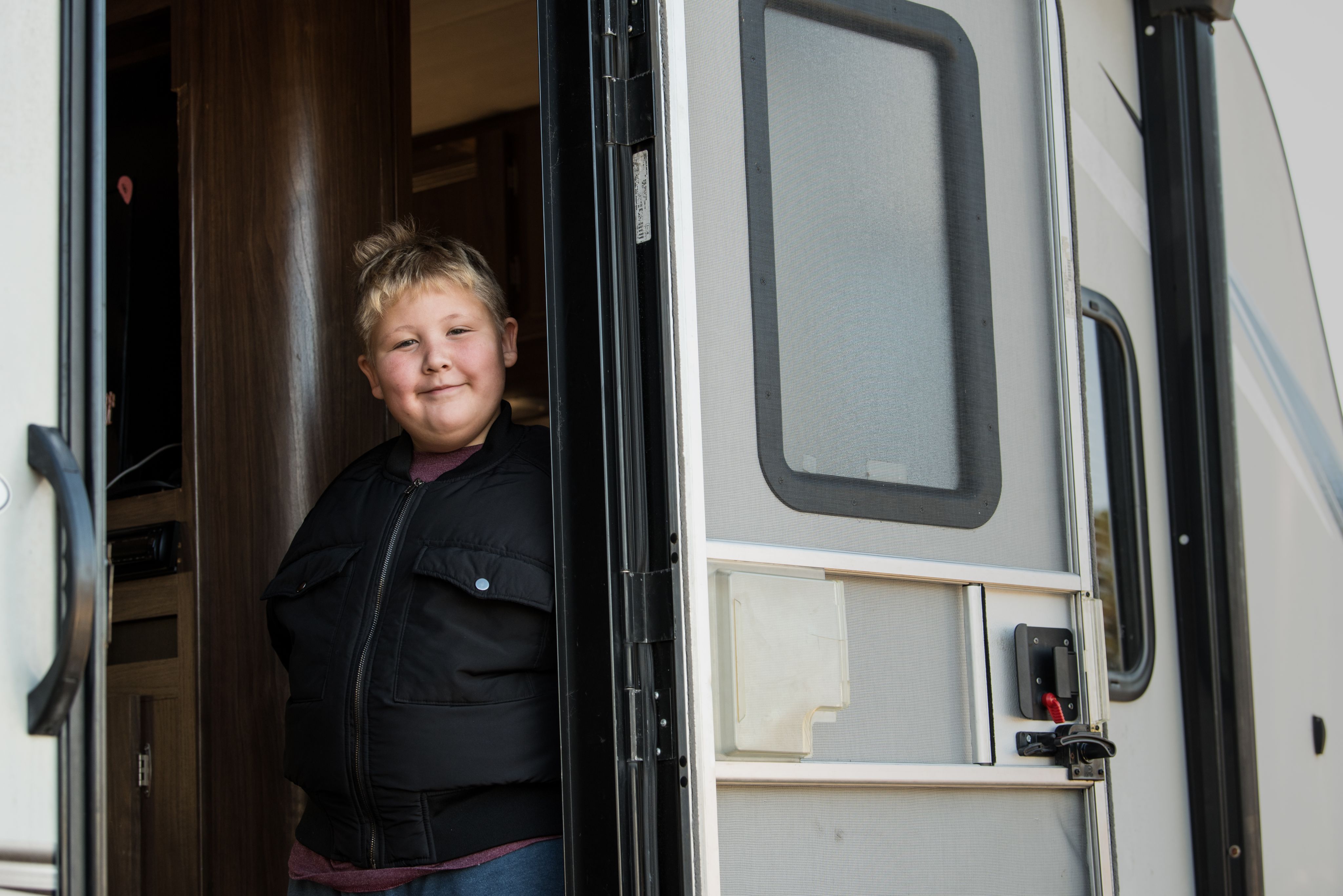
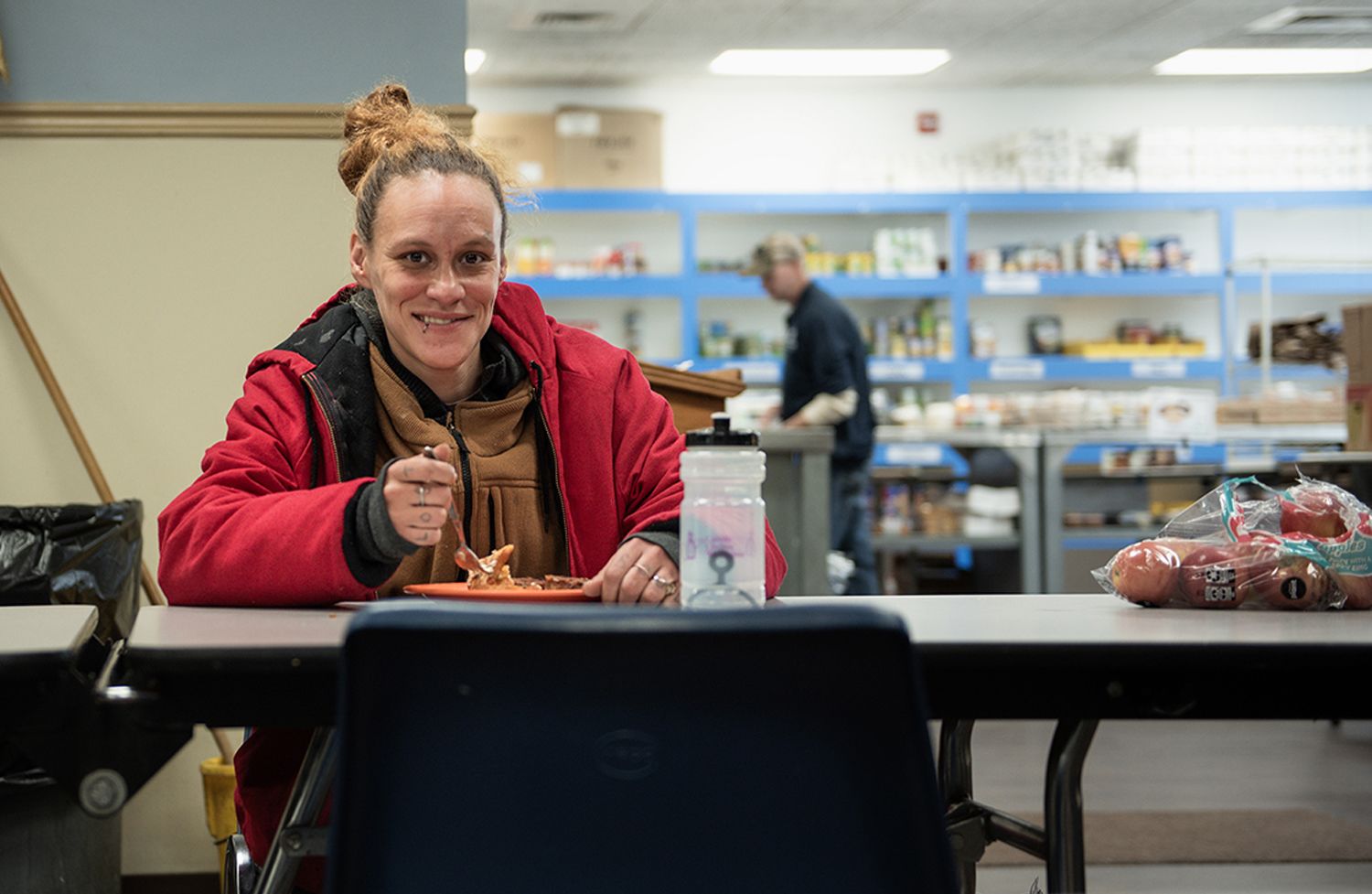
One client just wanted to make it to the next day. Another was escaping an abusive relationship. A third found greater autonomy at age 64 in a semi-supervised home for men with developmental disabilities.
.
Whether all at once or incrementally, of longtime necessity or imminent disaster, these clients of the 168 Catholic Charities agencies nationwide moved forward — each step a revelation, a life changed, a future within grasp.
“For I know well the plans I have in mind for you, says the LORD, plans for your welfare, not for woe! Plans to give you a future full of hope.”
Jeremiah 29:11
Many felt alone, with few options and fewer resources. But they bravely took the first step to reach out to their local Catholic Charities agency and accept an extended hand, one offering compassion and hope. Whether it took the form of job training and personal budgeting classes, transitional housing and guidance navigating community assistance, or behavioral health interventions and life-skills training, agency staff and volunteers walked with clients as they helped themselves and their families move forward with their lives.
“I always felt like I couldn’t do it,” said Ashley, who proudly achieved self-sufficiency and can now better care for herself and her children. “Catholic Charities helped me to see you can do anything.”
Ultimately, our work to reduce poverty and serve those in need in our communities is the story of one community, one client, one life at a time. Each story contains a whole world. We share their struggles and rejoice at their successes. We invite you to read their stories and to get to know Ashley and others like her, who know and understand her journey. They are the face of Catholic Charities. And they are forging pathways forward.
16 million people served

WE ARE THERE.
Every day, in every corner of the United States and its territories, Catholic Charities agencies are there for those most in need in their communities. They stock pantries where clients can shop for healthy food with dignity. They train and place local workers through career development programs that boost economic opportunity and stability. They unlock doors to affordable housing and new hope.
In 2024, CCUSA launched a national awareness campaign — We Are There — to shine a light on this life-giving work. National ads on broadcast television and in major publications have been combined with regional educational efforts to invite people across the country to learn more about and support their local agencies. This effort will continue into 2025, with more plans to tell the stories of the incredible impact the Catholic Charities network has on our country.
President’s Message
It’s a promise: We are there.
For more than 16 million people last year alone, Catholic Charities was there. As families and individuals across our country faced the most challenging moments of their lives, Catholic Charities agencies were there to offer a hand-up and a pathway forward.
When Hurricanes Helene and Milton ravaged the Southeast, we were there. When an unexpected job loss left a family teetering on the edge of homelessness, we were there. When struggling new parents didn’t know where to turn, Catholic Charities was there.
This life-giving, mercy-filled work is only possible because you — and many other supporters — are also there for your brothers and sisters in need. Your generosity allows Catholic Charities USA and our member agencies to continue to live up to our promise. We are so grateful.
Sincerely,
Kerry Alys Robinson
President & CEO
Monique
After ending an unhealthy relationship, Monique suddenly found herself homeless. She spent four nights sleeping in her car, then she learned about Catholic Charities Community Services (Phoenix). Click the button below to read the entire story.
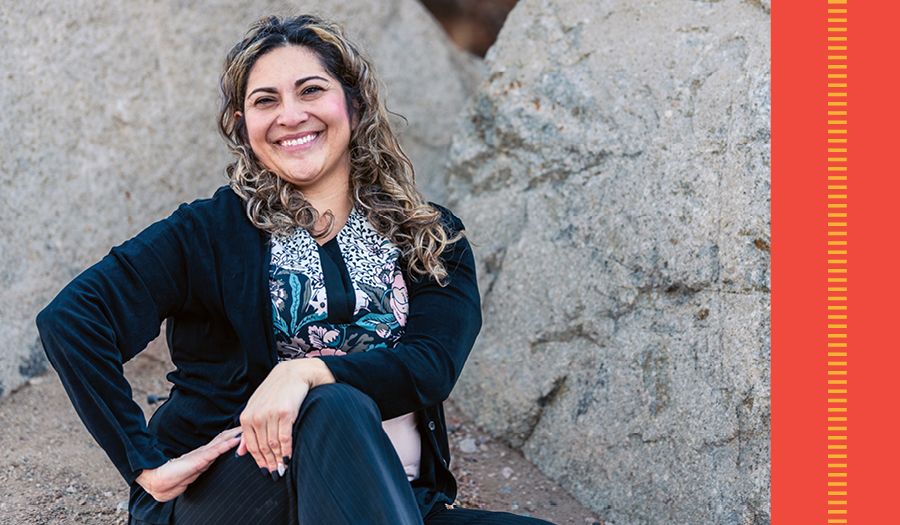
THE CHALLENGE:
A Growing Moral Crisis
The rate of homelessness in the United States continues to rise. On any given night last year, roughly 650,000 people were unsheltered. That is a 12 percent increase compared to the prior year and the highest level of homelessness since the federal government began tracking that statistic. At the same time, there is a national shortage of more than 7 million affordable rental homes for our nation’s roughly 10.8 million extremely low-income families.
This represents an urgent crisis that gets ignored far too often by the government and the media. With so many families living on the brink, Catholic Charities USA and its member agencies are providing short- and long-term solutions.
“Let me be clear. There is no social or moral justification, no justification whatsoever, for the lack of housing.” Pope Francis
Data provided by the U.S. Department of Housing and Urban Development and the National Low Income Housing Coalition.
AFFORDABLE HOUSING
Building Scalable Solutions
Every human being deserves a decent place to call home. That conviction guides the many ways the Catholic Charities network strives to help families across the country find and maintain access to affordable, safe housing. From shelters and permanent supportive housing facilities to emergency rental assistance and help with budgeting, Catholic Charities agencies help hundreds of thousands of Americans stay housed. CCUSA supports this work in a wide variety of ways, including developing and financing innovative programs that have the potential to make systemic, nationwide progress.
A prime example is CCUSA’s Affordable Housing Gap Loan pilot program, which helps address a leading cause of the nation’s housing shortage: the significant barrier of new construction costs. Through low-interest loans facilitated by Northern Trust, CCUSA provides Catholic Charities agencies with the “gap financing” needed to overcome financial hurdles and build new affordable housing. Over the past two years, this initiative has helped launch 11 housing communities, resulting in 862 new units of affordable rental housing in urban, suburban and rural settings.
CCUSA also is seeking to increase the national supply of affordable housing by helping the Catholic Church convert surplus church property into new housing units. This collaborative initiative with FADICA (Foundations and Donors Interested in Catholic Activities) will forge partnerships among local dioceses, religious orders, the Catholic Charities network and other critical partners to create secure, dignified homes for low-income families, seniors, individuals with special needs and many more people in need. Through the development of a concept paper and a series of webinars, CCUSA will equip church leaders with the knowledge and tools needed to transform properties effectively and efficiently and build neighborhoods that are safe and healthy.
Meanwhile, throughout 2024, CCUSA held a series of homelessness advocacy forums that trained local leaders in federal advocacy. These gatherings — hosted by Catholic Charities of the East Bay (Oakland); Catholic Charities Diocese of St. Petersburg; Catholic Social Services, Philadelphia; Catholic Charities Twin Cities; Catholic Charities Dallas; and Catholic Charities Community Services (Phoenix) — brought together national leaders in homelessness policy and local practitioners with intimate knowledge of the factors causing the crisis. The shared solutions developed through these conversations will be crafted into federal legislation that we hope will be introduced in Congress by 2026.
Samantha
Samantha was expecting her second child, a boy, when she made the brave decision to leave an abusive relationship. She took her four-year-old daughter and moved to St. Margaret of Cortona Transitional and Maternity Housing. Click the button below to read the entire story.
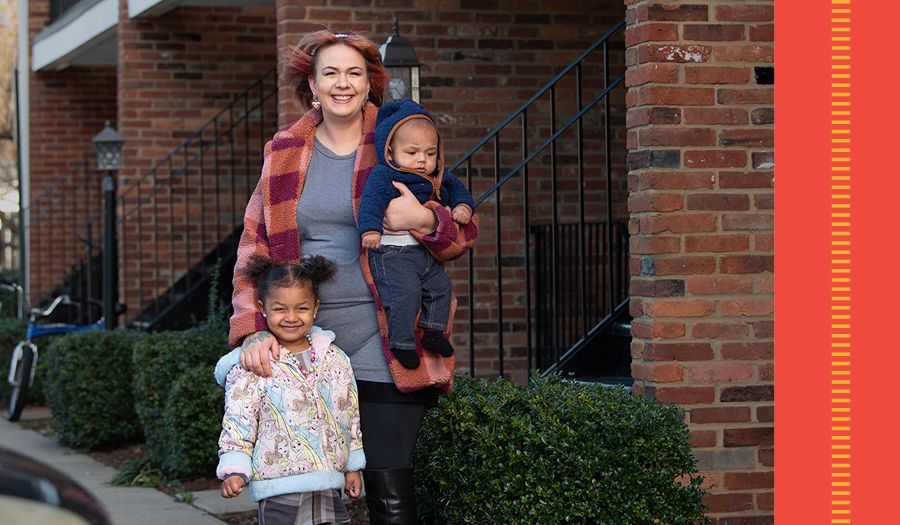
THE CHALLENGE:
The Staggering Costs of Poverty
Those living in poverty and other vulnerable populations — such as seniors, veterans, people with disabilities and expectant mothers — often face complex problems for which there are no shortcut solutions.
Last year, a full 13.5 percent of American households did not have enough money or other resources to meet their food needs, and minimum wage purchasing power is not keeping families out of poverty.
The individual and societal costs of poverty — the emotional toll on families, the academic losses for young students, the psychological burden on individuals and the opportunity costs to communities — are immeasurable. Poverty diminishes us all.
Data provided by the U.S. Department of Agriculture and the Economic Policy Institute.
BASIC NEEDS
A Poverty Safety Net
To reach their full potential, our neighbors who are struggling with poverty and its cascading effects need a compassionate hand-up, a holistic investment in their personal well-being and development. They often find this at their local Catholic Charities agency, where programs addressing the most basic needs, those that are fundamental to individual, family and community wellness, are some of their most foundational services.
Lifting Mothers Out of Poverty is a CCUSA initiative serving expectant and new mothers who are living in or are in danger of falling into poverty. Through the program’s supportive case management, women receive tailored wraparound services for 18 months to elevate their emotional and financial health. These interventions create tangible pathways out of poverty for the women, who achieve greater independence and chart a more hopeful future for their families.
Many Hands Make Light Work
Crises usually come unannounced — and at the worst possible time. A parent is laid off. A home lies in ruins after a fire. An unexpected hospital stay leads to crushing debt and lost wages. Through the support of Gerstner Philanthropies, CCUSA’s Helping Hands Program was created for those times of crisis when our vulnerable sisters and brothers need assistance the most.
Now operating in 20 Catholic Charities agencies, the program’s premise is simple: Provide short-term emergency funds to families that are one missed paycheck, one late rent payment or one broken-down car away from slipping into financial ruin. In the past year, the program granted more than $1,140,000 in aid to over 800 households across the country. Helping Hands allows them to stabilize and move forward.
FOOD & NUTRITION
The Centrality of Food
Food assistance accounts for the largest share of services provided by Catholic Charities agencies. Often, clients who come in for food learn that help is available for other issues they’re facing, such as finding affordable housing or connecting with mental health care. Sharing food with vulnerable neighbors is foundational.
Agencies may send children home with backpacks of food for the weekend or ensure they eat during the summertime; deliver meals to homebound seniors; or work with residents to establish and cultivate community gardens, filling stomachs and hearts.
To meet the growing need nationwide, CCUSA has initiated a hub-and-spoke model for collecting and distributing food and other supplies. By operating from centrally located warehouses, agencies are able to respond quickly and efficiently, restocking food pantries or sending water, emergency rations and even equipment to disaster sites.
This model has been successfully established in Arkansas, Louisiana, Mississippi, Oklahoma and Texas, with warehouse hubs located in Tulsa, San Antonio and Lafayette, Louisiana. CCUSA plans to grow the model next year, with two additional regional hubs to expand agency reach in areas where many Americans suffer from food insecurity.
From Soil to Sustenance
In the mountain town of Barranquitas, Puerto Rico, lies a 1.5-acre community garden that operates as a social enterprise for local farmers who sell the crops to area supermarkets and restaurants. Lush with plantains and pumpkins, lettuce and cilantro, the space was cultivated with seed money from a CCUSA grant to Cáritas de Puerto Rico. It is one of nine new Catholic Charities community gardens across the U.S. that are helping to feed and employ local residents and clients.
By the Numbers
Annually, CCUSA surveys the 168 diocesan agencies nationwide on their services,
collating the numbers to present a snapshot of their life-changing impact
on clients over the year.
28M
Meals provided
500K
Clients received services promoting strong families
2.8M
Clients received basic needs and emergency financial services
526K
People received behavioral health and wellness services
2.8M
Nights of emergency shelter provided
295K
People received emergency housing services
52
Disasters responded to in the U.S. and its territories
108
Agencies provided pregnancy services
4,533
Sites across the network — in all 50 states, the District of Columbia and 5 U.S. territories
4,700
Parishes that collaborated with an agency to serve their community
Ashley
When she entered the five-year Family Self-Sufficiency (FSS) Program at Catholic Charities Archdiocese of Chicago, Ashley was reluctant. “Five years is a lot,” said the now-31-year-old mother of two. Click the button below to read the entire story.

THE CHALLENGE:
Work, with Dignity
A vast chunk of the American workforce — about 31 million people or more than one-quarter — is stuck in low-wage jobs, according to the Economic Policy Institute. This is often because they lack the skills to acquire more gainful employment and don’t see opportunities in their communities to develop those skills.
Economic upheaval since the Great Recession and the pandemic have caused many to fall further behind even as a rising economy has lifted those with white-collar jobs and college degrees. Without work that pays a living wage or jobs that offer a sustainable career pathway, families and communities suffer, often leading to cycles of intergenerational poverty.
WORKFORCE DEVELOPMENT
Training the Trainers to Spot Talent
Dr. Martin Luther King Jr. said there is dignity in all work. Catholic Charities agencies offer workforce development and social enterprise programs that train and place workers so they can build skills for the future. In doing so, they create opportunities for themselves, their families and their communities.
CCUSA has joined forces with the Rework America Alliance, Jobs for the Future and Unidos to train agency employment services staff in skills-based hiring best practices. This gives staff the insight to recognize client skills and competencies — even when those clients lack degrees and certifications — and the tools to advocate on their behalf with employers. More than 157 workforce development staff at 26 agencies are taking part in the second cohort of this training, which is also fostering inter- and intra-agency communication, creating networks for best practices.
Trainings in English for Speakers of Other Languages (ESOL), employment readiness and financial literacy undergird workforce development programs, while fields such as building trades, services and health, agriculture and information technology offer career pathways. Clients who develop specialized skills can carve out a niche in their chosen field, bolstered by case management and tailored follow-up as they become more confident in their work and, ultimately, self-sufficient.
Innovating to Meet Demand
CCUSA’s Innovation Challenge awarded three $600,000 and six $100,000 cash prizes to participating agencies for their focus on workforce development and the sustainable economic security of workers and communities. The agencies’ programs — initially rolled out for a three-year period, with a goal of permanence as well as replication by other network agencies — foster worker talent through social services, community support, training, job strategies and industry-driven education.
Now in the second year, a program of Catholic Charities Eastern Washington aims to ease the transition of people with disabilities into the workforce, from which they are routinely excluded, often trapping them in poverty. Another in rural Tennessee (Catholic Charities, Diocese of Nashville) is helping to fill public- sector jobs, such as teachers and first responders, allowing clients to serve their communities and improve their life prospects. A third in South Dakota (Catholic Social Services of Rapid City) focuses on empowering single parents to achieve financial and social stability through mentoring, community referrals and wraparound services as they pursue education and career advancement.
Todd
Until two years ago, Todd was still living at home. In 1978, at age 21, he was diagnosed with a significant behavioral health condition that meant he would never live independently. Click the button below to read the entire story.
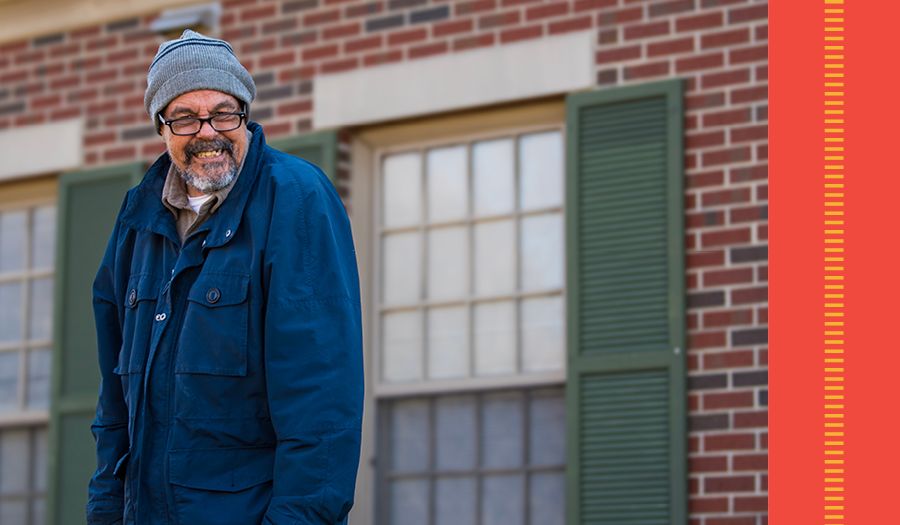
THE CHALLENGE:
A Mental Health Crisis
As the nation faces an epidemic of loneliness and a crisis of untreated behavioral health issues, demand for mental health services is outpacing the capacity of providers to care for those in need. In the last year alone, more than one-fifth of U.S. adults — 60 million people — have experienced a mental health condition, and one in four families have had to cope with the impacts of these crises.
Effective treatment is not always available or affordable, especially for those living in poverty, and many still fear the stigma of admitting that they need help. A range of factors, known as the “social determinants of health and well-being,” can ameliorate or exacerbate a crisis. Those include access to health care and appropriate medication; diet, nutrition and use of alcohol or drugs; family and social support; and access to safe housing and neighborhoods, as well as healthy food.
Data provided by Mental Health America.
BEHAVIORAL HEALTH
A Compassionate Response
In response to the national mental health crisis, CCUSA created Whole Hearted, a parish-based mental health-awareness resource that integrates spirituality and religious practices with behavioral health. The four-part series informs participants of the impact of painful experiences and of how individuals, families and communities might begin to move forward, mentally and spiritually.
CCUSA is also collaborating with the National Mental Health Campaign of the U.S. Conference of Catholic Bishops (USCCB), which has three main goals: to raise awareness of the mental health crisis, to combat stigma surrounding the topic of mental health and to advocate for all those impacted by the crisis. The bishops’ message is simple: Everyone who needs help should receive help.
A Safety Net of Hope
Hope Chatbot, a free, accessible, 24/7 AI-driven tool, is designed to help users manage daily stress and anxiety, as well as promote self-care practices. It is meant for short-term, prevention and early intervention services. Users remain anonymous, but the program makes referrals to live counselors for those in immediate need.
Those who lack easy access to mental health care — whether for financial, cultural or logistical reasons, such as living in rural communities without care providers or transportation — may find Hope particularly helpful. Agencies promote the service through parishes and word of mouth, as well as to existing clients. Think of it as a safety net for those who might otherwise experience a crisis and require more intensive services that may be hard to come by or have a waiting list.
Sixteen network agencies currently employ Hope Chatbot, in a combination of English and Spanish; more than 11,300 people have chatted, and more than 2,600 crises have been reported. Hope can’t wait.
Koty & Jennifer
Koty, Jennifer and their two school-age children were living in the mobile home Koty’s mother grew up in — tight quarters, but it worked. Then North Carolina was rocked first by Hurricane Matthew and then by Hurricane Florence in a 20-month period. Click the button below to read the entire story.
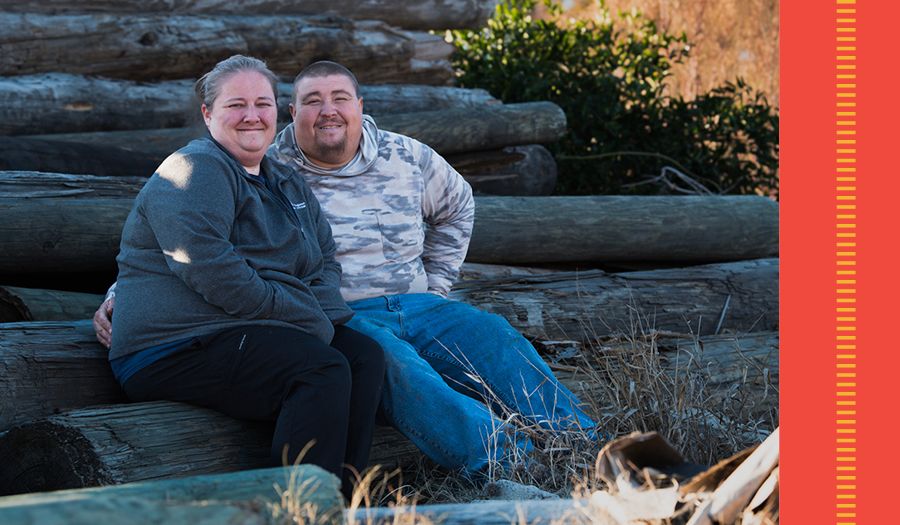
THE CHALLENGE:
The Unpredictability of Natural Disasters
Devastating natural disasters are increasing in frequency — and in unpredictability. Hurricanes are striking communities traditionally considered safe from their wrath. Wildfires are breaking out beyond what was once designated as wildfire season. Americans are grappling with a new reality: Disasters could hit any community at almost any time.
In August, the National Oceanic and Atmospheric Administration’s National Weather Service, citing unusually warm ocean surface temperatures, predicted that the second half of the 2024 hurricane season could be among the busiest on record. The next month, Hurricane Helene ravaged the Southeast, becoming the deadliest storm to strike the mainland U.S. since Hurricane Katrina in 2005. Just two weeks later, Hurricane Milton, another powerful storm, brought even more destruction to some of the same parts of Florida that were still picking up the pieces from Helene.
Against this backdrop, adequately preparing for and responding to unexpected disasters has never been more critical for communities — or more challenging.
DISASTER RESPONSE
Strategic Preparations Yield Collaborative Responses
As the official disaster relief agency of the Catholic Church in the United States, CCUSA continues to adapt its strategies and preparations to meet the increasing unpredictability of natural disasters. This past year, CCUSA began hosting regional Disaster Response Academies (DRAs). Funded by the Joseph & Gene Swedish Family Foundation, these intensive trainings are held in geographically diverse, high-risk areas throughout the country. Between DRAs in San Jose, Houston and Fall River, Massachusetts, and the Applied Institute for Disaster Excellence (AIDE), the annual national disaster training, CCUSA trained more disaster case managers than ever before. At the same time, CCUSA has implemented a hub-and-spoke model for staging and sharing disaster resources at key agencies around the country, allowing the network to quickly deploy supplies to the areas of greatest need.
These preparations proved their worth in the wake of Hurricanes Helene and Milton. CCUSA helped guide 12 agencies across seven states in providing immediate relief to those most impacted in their communities. In addition, staff and resources from unaffected agencies were deployed to help in the hardest hit areas. Trained disaster case managers from Catholic Charities agencies in Raleigh, Sacramento, Baton Rouge and Owensboro deployed to their fellow agencies in East Tennessee and Charlotte to help with the recovery. At the same time, other agencies sent resources and goods to Catholic Charities agencies in St. Petersburg and other affected areas.
CCUSA raised more than $8 million for the recovery efforts, with all of the funds going directly to Catholic Charities agencies in the most affected areas. In addition to Hurricanes Milton and Helene, CCUSA helped lead and fund responses to a wide variety of disasters, from tornadoes in Oklahoma and flooding in Iowa to wildfires in California, New Mexico and Washington.
A Spirit of Collaboration
The life-giving work of the Catholic Charities network is only possible thanks to a deep, ongoing collaborative spirit. The 168 Catholic Charities diocesan agencies around the country rely not only on their dedicated staffs but an army of more than 200,000 volunteers.
Of course, the critical collaborations that make this service possible extend beyond the Catholic Charities network itself. Key corporate sponsors — from Airbnb and Walmart to Bank of America, Amazon and Home Depot, to name just a few — provide critical goods, services and funding that help Catholic Charities serve those most in need, from newly arrived refugees to victims of natural disasters.
CCUSA also receives support from other faith-based groups and mission-aligned organizations. The Church of Jesus Christ of Latter-day Saints donates food, other goods and funding to Catholic Charities agencies around the country. In collaboration with CCUSA, the University of San Diego runs the 18-week Professional Certificate in Nonprofit Executive Management, which offers a customized curriculum to strengthen the management skills of senior leaders at Catholic Charities agencies. And CCUSA works closely with Interfaith America, Habitat for Humanity International and YMCA of the USA on the Team Up Project, a national bridgebuilding initiative that promotes authentic connections in local communities.
Chief Development
Officer’s Message
This past year is already just a memory, and while, like any year, it saw challenges, there is so much for which we at CCUSA are grateful.
The flip side to every hardship is the opportunity it provides for individuals and communities to come together, to support one another and to help their vulnerable neighbors forge a path forward. We are honored that so many have chosen Catholic Charities as the vehicle for doing so.
Americans have sought out their local Catholic Charities agencies and donated volunteer hours to mentor children and accompany seniors to medical appointments; delivered canned goods for community food pantries and baby supplies for diaper banks; and given generous financial donations to disaster relief and to help stabilize struggling families.
The work of Catholic Charities connects people across divides. That could not happen without the many thousands of committed staff, volunteers, donors and supporters who make our mission a reality. Your generosity allows us to accompany our sisters and brothers in their time of greatest need and to meet
the moment, this year and every year.
Anthony T. Sciacca
Executive Vice President & Chief Development Officer
Pathways Forward
Just as Catholic Charities clients look to the promise of a new day, CCUSA does, too. In 2024, we embarked on a strategic planning process to define our own future.
Poverty remains a stubborn adversary. For decades, the percentage of families and individuals living in poverty in the United States has fluctuated between 11 and 15 percent. As growing national trends — for instance, 36 percent of Americans say they are persistently lonely — make life even more challenging for vulnerable populations, inflation and skyrocketing home prices leave too many families feeling that the American dream is unattainable.
These evolving challenges beg for a fresh look at solutions. We look forward to being able to share our new strategic plan with you in spring 2025. While the details are still being finalized, our work has been guided by the yearlong inputs and insights of our network of agencies and leaders, Catholic and social services thought leaders and by you — our donors and supporters. As we adapt to address emerging needs, our solutions will be scalable, replicable and sustainable, threaded through with a commitment to efficiency and measurability.
Underlying every strategy and every initiative will be one overarching outcome: To make people’s lives better by upholding the dignity of every human. For it is by caring for our sisters and brothers in need and recognizing their full humanity that Catholic Charities best fulfills its charge: To promote the development of the whole person — emotionally, physically, intellectually, spiritually and socially — and to make real the promise of Matthew 25: “Whatever you did for the one of these least of mine, you did for me.”
We look forward to sharing our next pathway forward with you later this year. Thank you for your support today, and thank you in advance for your support during our renewed tomorrow.
2050 Ballenger Ave, Suite 400
Alexandria, VA 22314
Tel: 703-549-1390 | catholiccharitiesusa.org
© 2025 Catholic Charities USA. All rights reserved.
Terms of Service | Privacy Policy
CCUSA is a 501(c)(3) non-profit organization.
Federal Tax ID Number 53-0196620

